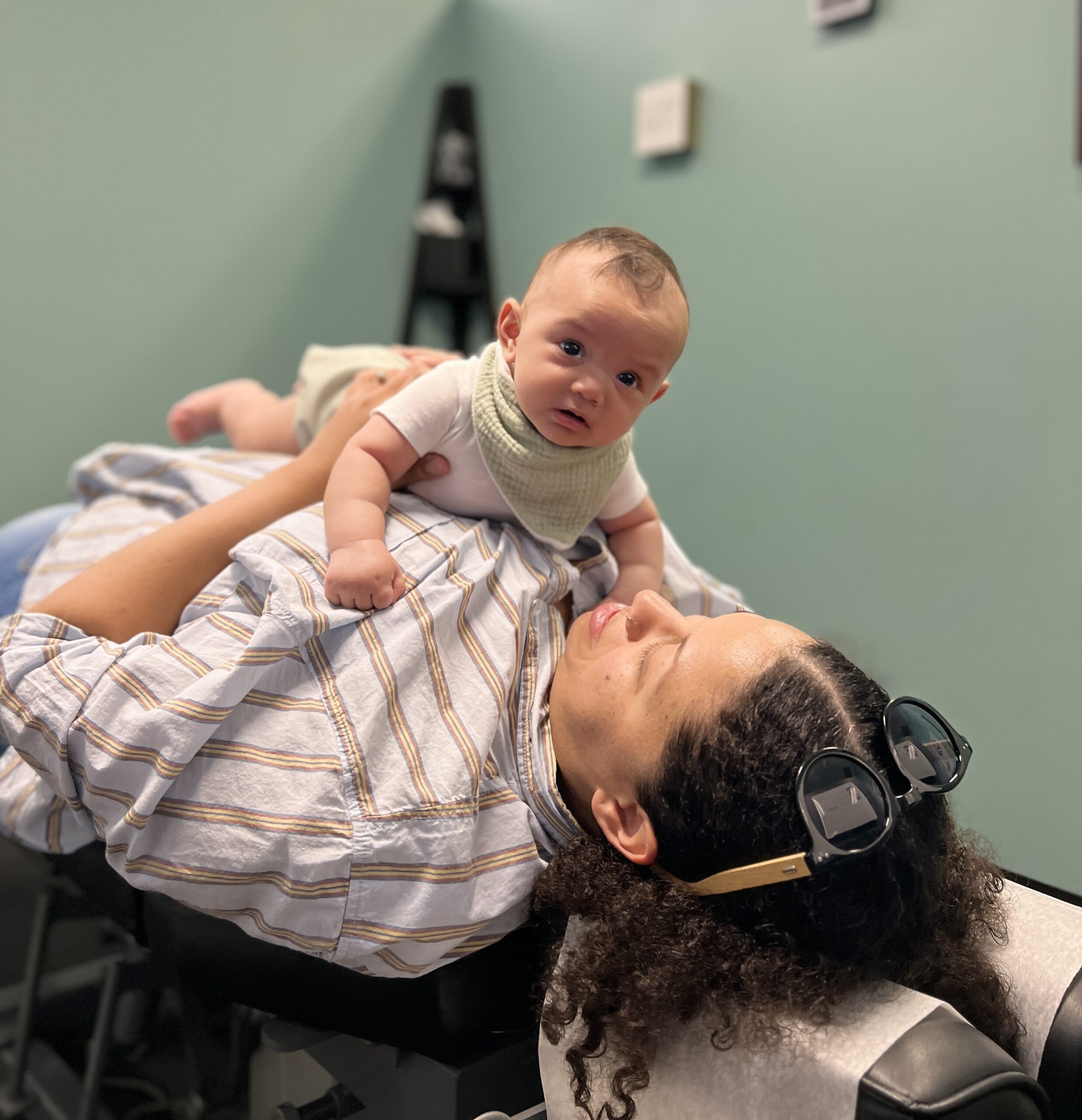As a parent, you’ve probably had that nagging feeling that something isn’t quite right with your baby, despite your pediatrician insisting everything’s normal. Maybe it’s the way they struggle to sleep unless they’re held. Perhaps it’s their constant fussiness that extends beyond typical newborn behavior. Or maybe it’s those digestive issues that your doctor dismisses as “normal baby stuff.”
Here’s what I want you to know: It’s okay to trust that your parental intuition is right! Those subtle signs you’re noticing may actually be indicators of hidden neurological stress that could be affecting your baby right now.
The Alarming Reality About Children’s Health Today
The statistics around children’s health today are deeply concerning. According to the Centers for Disease Control and Prevention, 40% of children now suffer from at least one chronic health condition – numbers that have risen dramatically over the past few decades. Even more eye-opening, research published in the Journal of the American Osteopathic Association found that 99% of newborns, even those considered “healthy,” had some form of somatic dysfunction affecting their cranial, cervical, lumbar, and sacral regions – with the degree of dysfunction directly related to the length of labor.
These statistics reveal a widespread issue that most parents aren’t aware of: standard pediatric checkups, while valuable for many aspects of health, simply aren’t designed to detect the neurological dysfunction that could be affecting your baby right now and potentially contributing to health challenges that emerge months or years later.
Understanding the “Perfect Storm” Creating Hidden Stress
What we call the “Perfect Storm” refers to a cascade of stressors that begin early in life and can set the stage for neurological dysfunction in babies. This storm typically begins during pregnancy when a mother experiences chronic stress, causing hormones like cortisol to cross the placenta and impact the developing baby’s nervous system.
Research published in ScienceDirect shows that maternal stress during pregnancy can actually alter the development of the baby’s brain, creating a foundation for dysfunction before birth even occurs. The birth process itself, while natural, can create significant physical stress for newborns – and this stress is often magnified by common interventions.
How Birth Interventions Impact Your Baby’s Nervous System
Many common birth interventions, while sometimes medically necessary, can create additional challenges for your baby’s delicate nervous system:
C-sections bypass the natural compression sequence that helps prepare a baby’s nervous system for life outside the womb, potentially leading to retained birth trauma and neurological stress.
Forceps or vacuum extraction apply significant forces to a baby’s delicate head and neck, potentially causing the brainstem and vagus nerve to be out of proper alignment.
These physical challenges often lead to what’s called subluxation – areas of neurological interference that disrupt the communication between the brain and body.

The Subtle Signs Every Parent Should Watch For
Your baby may be experiencing hidden neurological stress if you notice:
Sleep Challenges: Difficulty falling or staying asleep, restless sleep, or only sleeping when held or in motion. These aren’t just “normal baby things” but potential indicators of nervous system dysfunction.
Feeding Difficulties: Poor latch, excessive spitting up, or becoming easily distracted during feeds can all stem from neurological stress.
Digestive Issues: Constipation, excessive gas, or signs of colic (excessive crying for more than three hours a day, three days a week) often indicate vagus nerve dysfunction.
Physical Asymmetries: Preference for turning the head to one side or flattening on one side of the head can signal neurological imbalance.
Sensory Sensitivity: Heightened startle reflex, excessive irritability in stimulating environments, or difficulty calming when overstimulated are all red flags for nervous system stress.
Why Traditional Approaches Sometimes Miss These Issues
Standard pediatric care focuses primarily on measuring growth, checking for visible illness, and monitoring major developmental milestones – not subtle neurological dysfunction. The conventional approach typically follows a “wait and see” pattern, addressing symptoms with medications only when they become severe enough to warrant intervention.
This approach often leads to managing symptoms without addressing the underlying root cause, potentially allowing neurological dysfunction to compound over time.
A Gentle Approach to Addressing Hidden Stress
Neurologically-Focused Chiropractic Care offers a gentle approach to addressing hidden stress in babies. This specialized care uses:
- Gentle adjustments using pressure about the same amount you’d use to put in a contact lens or check a tomato’s ripeness
- Advanced neurological scans, INSiGHT Scans, that objectively measure nervous system function, detecting subluxation and dysautonomia that would be missed in standard pediatric exams
- Root cause focus that addresses subluxation and promotes proper nervous system function
By addressing these issues early, this care helps babies develop more resilient, balanced nervous systems that support overall health and development.
Trust Your Instincts and Take Action
As parents, you know your baby better than anyone. If something feels off, don’t dismiss those feelings. Your parental intuition, combined with proper assessment, can be powerful tools in ensuring your baby’s optimal health and development.
The hidden stress affecting your baby today doesn’t have to become tomorrow’s chronic health challenge. At Maximize Chiropractic, we know that Neurologically-Focused Chiropractic Care can help set your child up for a lifetime of better health – and we are ready to help with that! Please don’t wait to reach out to schedule a consultation with us today. If you are not local to us, check out the PX Docs directory to find a PX Docs office near you.
Your instincts matter. Your baby’s nervous system matters. And taking action early matters most of all.

